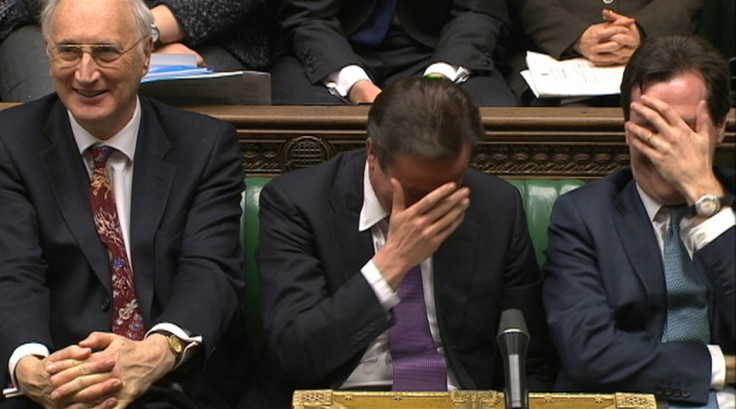Tory Dinner Donations? Conservatives Struggle to Bury Nasty Party Image [OPINION]

Cliches are usually accepted as fact largely because, if not entirely true, they usually hold at least a solid foundation of truth.
Or, at the very least, perception.
That's why the phrase "A week is a long time in politics" springs to mind in the immediate wake of the "cash for access" row that's put the ruling Conservative Party firmly on the defensive.
Only six days ago - during the first official throes of spring, no less - all seemed rosy for the Prime Minister David Cameron and his chancellor, George Osborne.
The economy was showing signs of recovery, the forthcoming Budget statement was being effectively leak-managed in the nation's press and the Opposition Labour leadership seemed unable to grasp a coherent point of attack.
Not so today.
The missteps have come thick and fast for a party that wishes to both cement its reputation for economic competence and destroy its association with the "old school ties" that many still feel dominate the its dealings.
Sadly for the Conservatives, any fair assessment of the score on both counts has to read "two-nil" for the party's critics.
The cracks began to show late last week as an otherwise pedestrian Budget statement by the chancellor was overtaken in the news cycle by accusations of crony-capitalism - thanks to a sensible, if poorly articulated - plan to reduce the top rate of income tax.
When set against similarly logical plans to reduce tax credits for the elderly, it didn't take Malcolm Tucker to foresee the inevitable "granny tax" headlines that followed.
Perception is reality, goes another famous cliché, and while it's an often unfair truism, the Conservatives have to shoulder the blame for not properly managing the optics of tax cuts for the rich and tax hikes for the old.
A recent poll suggests the error has given Ed Miliband's Labour Party an eight-point lead over the Conservatives over the weekend.
And that makes the Sunday Times sting - where outgoing Tory treasurer Peter Cruddas was secretly filmed allegedly offering access to the prime minister based on the size of donations to the party - all the more damaging.
The sounds and images of a former City banker soliciting donations from a fake private wealth fund based in tax-friendly Liechtenstein enforce the worst stereotypes of the "same old Tories" and do little to dispel the common perception of a party for the rich and powerful.
That image will take some effort to undo after Downing Street - under pressure from all sides - released the list of guests the prime minister has privately entertained for dinner at his flat above Number 11 Downing Street.
While Cameron can rightly argue that the dinners were not paid for by the taxpayer and took place in his private residence, the public will invariably draw conclusions from his circle of friends, as they include some of the most high-profile names in the City of London.
To lose one news cycle could be seen as misfortune, a present-day Oscar Wilde spin doctor might say, to lose two looks like carelessness.
© Copyright IBTimes 2025. All rights reserved.




















